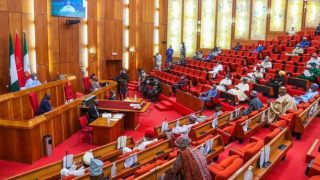By Ayo Kehinde
The Federal Government has explained again the context and content of the new tax policy that takes on January 1, 2026, disclosing that ordinary Nigerians and small businesses will enjoy tax exemption.
The Presidential Fiscal Policy and Tax Reforms Committee announced on Monday that 50 tax exemptions and reliefs set to take effect from January 1, 2026.
The announcement was made during a press briefing on Thursday by the committee chairman, Taiwo Oyedele.
The relief package is designed to provide targeted support for low-income earners, micro-, small-, and medium-sized enterprises (MSMEs), and to simplify the country’s tax system.
Oyedele described the measures as among the most people-focused tax reforms in recent history, emphasising fairness, inclusiveness, and the promotion of voluntary compliance.
For Individuals/Personal Income Tax:
Individuals earning the national minimum wage or less will be fully exempt from personal income tax.
An annual gross income of up to N1.2 million will attract zero personal tax.
Contributions to pension funds, National Health Insurance (NHIS), National Housing Fund (NHF), life insurance premiums, and owner-occupied home loans will remain deductible.
Pensions, gratuities, and retirement benefits remain tax-exempt.
Compensation for loss of employment up to N50 million will also be exempt.
Certain capital gains, including the sale of owner-occupied homes, personal effects, and shares below designated thresholds, will be exempt from tax.
For Businesses /SMEs:
Companies with turnover up to N100 million and fixed assets below N250 million will pay 0% Companies Income Tax.
Startups meeting government criteria will also qualify.
Companies that provide additional salaries or benefits to low-income staff, or hire new employees for at least three years, will benefit from tax reliefs.
Agricultural businesses will enjoy a five-year tax holiday, while exemptions apply to certain levies and withholding taxes.
Indirect Taxes/VAT:
Many essential goods and services, including basic foods, rent, education materials, healthcare services, and agricultural inputs, will be VAT-exempt or zero-rated.
Small businesses with a turnover ≤ N100 million will not be required to charge VAT on sales.
VAT exemptions also cover diesel, petrol, solar equipment, baby products, sanitary items, and disability aids.
Stamp Duties & Transfers:
Electronic money transfers below N10,000, salary payments, and intra-bank transfers will be exempt from stamp duties.
Transfers of government securities, shares, and stocks will also enjoy exemption.
The committee explained that the reforms aim to reduce the fiscal burden on low-income earners and SMEs, encourage compliance, and stimulate investment and consumption. The package is part of the government’s broader effort to make the tax system more progressive and business-friendly.
The reforms come after persistent inflation, tight monetary conditions, and currency volatility in Nigeria, which have historically constrained both household spending and business expansion. By providing targeted exemptions, the government seeks to ease financial pressure while maintaining fiscal stability.
Analysts warn that while the exemptions are welcome, they could narrow the tax base if not properly monitored. Clear definitions for eligibility — such as what qualifies as a “startup” or “small company” — will be crucial to prevent loopholes. The government will also need efficient administrative processes to ensure smooth implementation and compliance.
The tax reliefs will officially take effect from January 1, 2026, and taxpayers are expected to work with the Federal Inland Revenue Service (FIRS) and relevant state tax authorities to apply the exemptions. Observers will be watching how the measures impact government revenue, household spending, and SME growth in the coming year.




